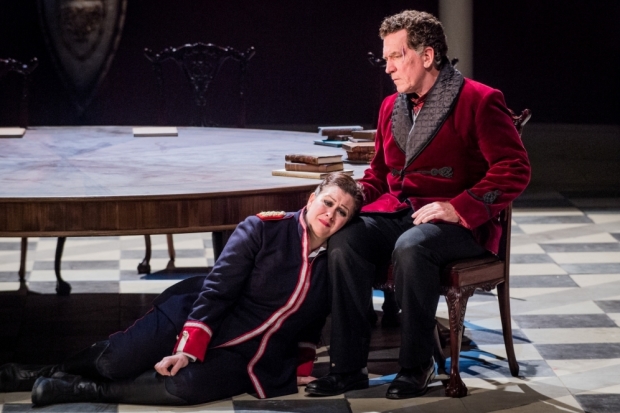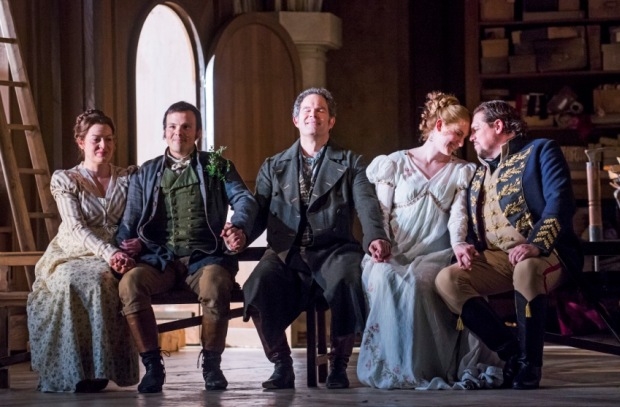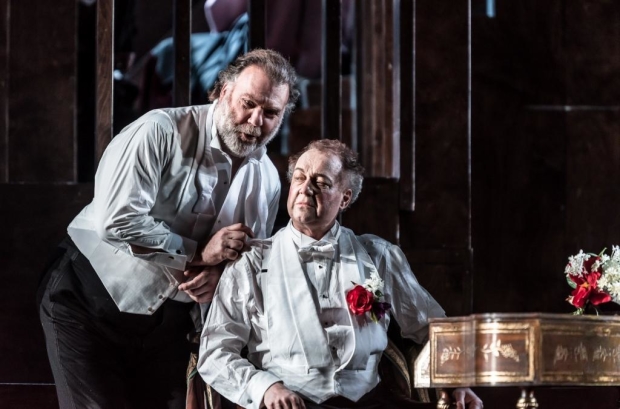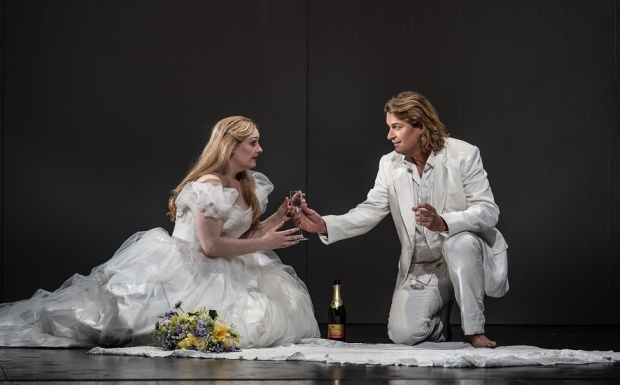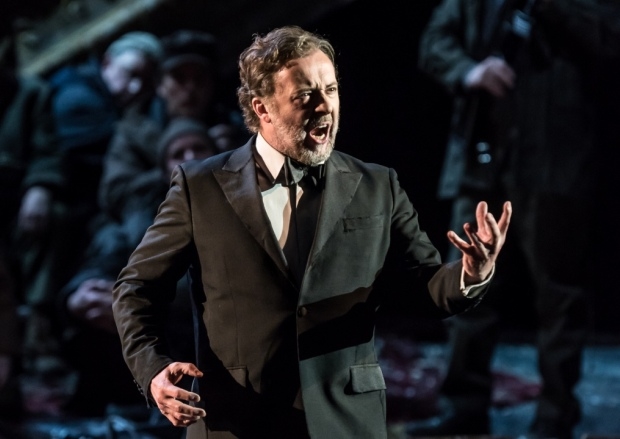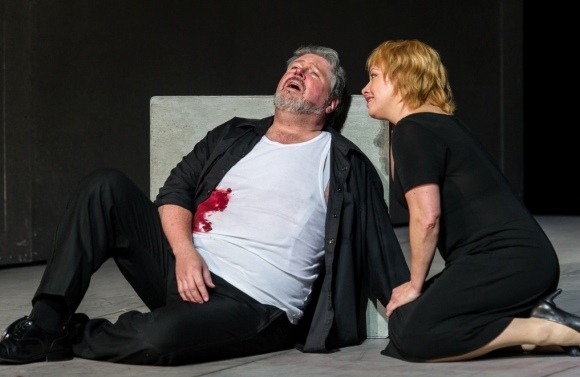Review: Das Rheingold (Royal Opera House)
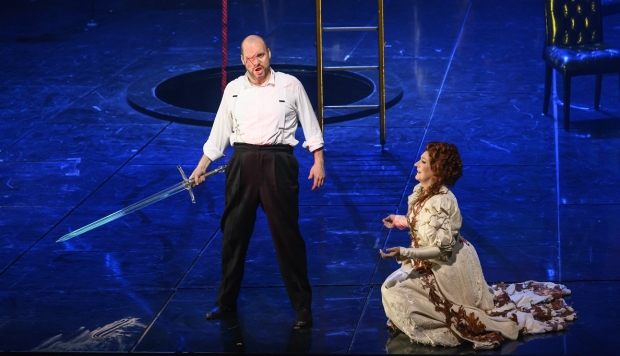
© Bill Cooper
Fat books have been written about the Ring cycle, so intense is the musical and poetic richness of Wagner's 15-hour saga. His tale of gods and monsters spreads across four evenings; but the composer eases us in gently with this Prologue, a mere trifle at 150 uninterrupted minutes.
For the second revival of Keith Warner's mid-noughties production Antonio Pappano and the Royal Opera have assembled a cast of rare promise. All four operas boast a who's who of today's leading Wagner exponents working in tandem with others who are simply terrific singers. Thus Das Rheingold finds Johannes Martin Kränzle (Alberich), Gerhard Siegel (Mime) and Günther Groissböck (Fasolt) sharing the stage with Alan Oke (Loge), Lise Davidsen (Freia) and Brindley Sherratt (Fafner). Beat that.
Warner's staging is dour and fragmentary, with big shiny designs by the late Stefanos Lazaridis that suggest a mill owner's folly, complete with vaguely Edwardian costumes. Some aspects of it work well but too often the insistent aesthetic shunts against the drama – for example in the descent into Nibelheim, a musical searing set piece of thudding menace and clanging anvils that here amounts to little more than a floor change.
In an opera where gods seem more human than earthlings, big cheese Wotan's feet of clay make him a dubious candidate for the top job (yes, the parallels with today's politics are irresistible) and his missing eye proves it. To paraphrase Yul Brynner in The Magnificent Seven, I'd sooner hire the person who did that to him. Swedish bass John Lundgren made a splendid job of the role in Bayreuth last year but here he was vocally out of sorts, low on gravitas and by the end clean out of low notes.
Oke and Kränzle, by contrast, made such magnetic antagonists that disbelief wasn't just suspended, it was throttled. As the fiery Loge in a flowing red wig Oke banished all thoughts of his tortured Britten characters and scorched the stage with gleeful energy; and Kränzle, last seen at Covent Garden as Beckmesser in Die Meistersinger, sang Alberich like a buffo villain yet always threatened danger. All the odder of Warner, then, to depict the wicked dwarf's shapeshifting scene against the production's prevailing symbolism through the literal medium of puppetry. It was like dropping clips from Monsters Inc. into a JB Priestley play.
The production's character echoes between Alberich and Wotan are promising but don't play out with any consistency. Alberich impales his eye on Wotan's spear to mirror his deformity; Wotan leaps down to hell at the opera's end while the other gods climb up ladders to their new-build Valhalla. Is there any point to these symbolic moments? That remains to be seen. This is only episode one after all.
The exciting talents of Lise Davidsen were wasted in the passive role of Freia, but Sarah Connolly was in charismatic vocal and theatrical form as the goddess Fricka, and there were commanding turns from Markus Eiche and Andrew Staples as Donner and Froh. Sherratt and Groissböck as the bickering giants, their fates sealed by the thrall of the ring, transcended some cartoonish make-up to give accounts of combative basso power.
Pappano and the ROH Orchestra delivered a propulsive reading of the score that convinced from the first entry of the Rhinemaidens (Lauren Fagan, Christina Bock and Angela Simkin, all excellent despite being required by the all-male creative team to sing while naked) to the opera's rainbow finale. Neither his energy nor his musical judgement sagged at any point; and thank goodness. There's a long road ahead.



